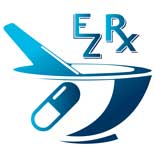If you or anyone else in your family has scratchy throat, stuffy nose, feverish, or coughing frequently, you should probably get yourself examined for seasonal flu and get a flu shot. Meanwhile, you can follow the below tips to protect members in your family from infection.
Load up your supplies of paper towels, soaps, and hand sanitizers. Ensure you and your family scrub hands with soap and water for at least 20 seconds often. Make sure you stock up your medicine cabinet with fever reducers and pain relievers. Check for correct dosage as per age and weight, and ensure that medicines do not overlap. Ensure that heavily touched items like door knobs and remote controls are disinfected. Switch to paper goods, like paper towels and paper cups, as you can discard them after one use, and hence minimize the possibility of germ spread. Stock up your pantry and fridge with some easy-to-make foods, in case you need a few days to recover and are unable to cook.
This year, Americans could also have to face respiratory syncytial virus (RSV) along with the flu, which is a new variant of COVID-19. So, it would be a good idea to stock your medicine cabinet with some over the counter (OTC) medications. These include:
Cough syrups: Brands like Mucinex and Robitussin sell syrups that you can use to keep chest congestion to a minimum. Read the label for appropriate dosing for children and adults.
Fever reducers and pain relievers: Motrin (ibuprofen) and Tylenol (acetaminophen) work best to reduce fever and pain. However, as these products are also included in many cough and cold medicines, check with your healthcare provider before taking them so that you do not exceed the recommended dose. The safe recommended dose of ibuprofen for adults is 2400mg, and acetaminophen is 3000 mg.
Nasal sprays and nasal irrigation kits: Using nasal sprays helps decrease inflammation and swelling in nasal passages and nearby ear canal. Nasal irrigation kit will thin thick mucus and also relieve nasal symptoms associated with cold and flu. Anyone above the age of 5 can benefit from this non-drug therapy.
Throat lozenges: You can try to decongest your throat with gargling and saltwater. Throat lozenges can be used if you do not get relief. Do not put it into your mouth at bedtime, as you can aspirate it into your lungs if you fall asleep.
Antihistamines: Taking these medications will reduce nasal swelling that makes you feel stuffed up. The medication will work best if it is taken for 5 or more days continuously. You can obtain a prescription for your antihistamine from your doctor and save money by using the EZRX Drug Discount Card.
Immune system boosters: Elderberry gummies and vitamin C will help boost your immune system and prevent you from getting sick. If you do get sick, these immune system boosters will reduce the severity of symptoms, and also reduce the duration of your illness.
Hydration aids: If you lose fluids through diarrhea, vomiting and sweating, hydrate yourself regularly to ensure that you receive enough liquids so that your white blood cells can fight off infection. Consume water-based, non-dairy fluids as much as possible, as these will keep your mucus and phlegm thinner, so you are less likely to get secondary infections.
Also hydrate the indoor air with dehumidifiers; it will protect youngsters in your home from congestion. Check your temperature with a thermometer if you feel warm, CDC says you will have fever if your temperature is 100.4 degrees F or above. You can use a digital thermometer for quick and accurate results. Wear a mask to save yourself from infection. As COVID-19 and flu share similar symptoms, get yourself tested for COVID-19 using at-home test kit.
Plan for sick days, as your kids may fall sick. Line up support from family to watch for your kids in case you fall sick. Get your flu shot, and make sure that your entire family is vaccinated.







